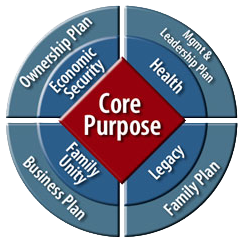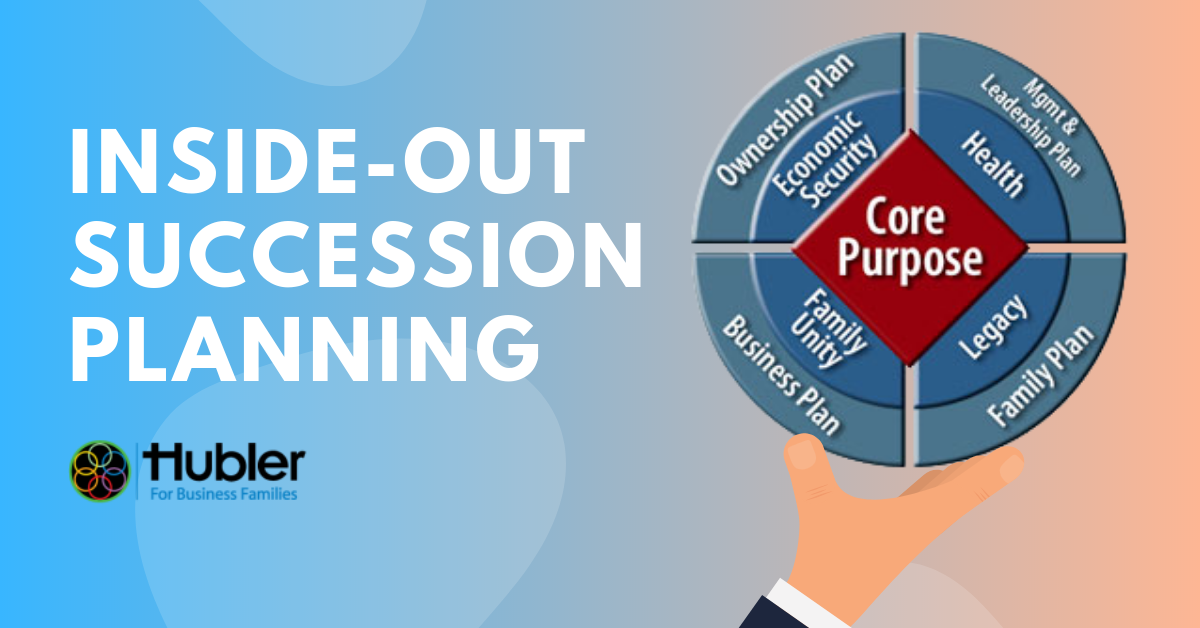Defining Your Core Purpose

- Economic Security. The plan to transfer a business down to a newer generation is most commonly made when an entrepreneur is edging towards retirement age. This means creating a plan that will allow them to reap the rewards of building a successful business and turning their volatile investment into a reliable way to sustain their lifestyle moving into retirement.
- Health. Whether it be physical health, mental health, or emotional wellbeing, the health needs of an entrepreneur are often a driving motivation when succession planning. Retirement can prompt strong feelings of “getting old,” which themselves prompt fear of ailing health or lack of purpose and drive in old age. Creating a succession plan that encourages entrepreneurs to maintain purpose and connections within the business can alleviate fears that they’re simply being “promoted out” by the younger generation.
- Legacy. While most entrepreneurs will deny the need for validation from those both inside and outside their families, the truth is that building a successful business is a great source of pride for almost all business owners, and it’s important for any succession plan to address how an entrepreneur wants their legacy to be preserved, whether it be the ideals they weaved throughout the company, recognition of the accomplishments and sacrifices they’ve made for their family, or the wealth they leave behind for future generations.
- Family Unity. As we’ve discussed previously with Hubler’s “Speck of Dust Theory,” far too often families will suppress their differences and avoid uncomfortable conversations for the sake of what they see as preserving family relationships. But on the contrary, these difficult conversations about succession, financial differences, or business goals need to happen in order to maintain a functional family unit and preserve a functional family-run business.
Defining a core purpose is the first step in creating a successful Inside-Out Succession Plan™. Next month, we’ll discuss the next step: taking your core purpose and using it to build out a full-fledged succession plan. For more details about these core purposes, what they’re used for, and how they can be combined, consider checking out The Soul of the Family Business by Tom Hubler. Through personal anecdotes, real-world case studies, useful tools and frameworks, and more, Hubler offers a wealth of lessons on succession planning and other common stressors within family businesses. For all of this, pick up The Soul of the Family Business, available in hardcover form on Amazon.com, directly through Itasca Books, or at a bookstore near you. And of course, you can always contact Hubler for Business Families today to set up a free orientation meeting with Thomas Hubler, the expert on family business planning.


 RSS Feed
RSS Feed
